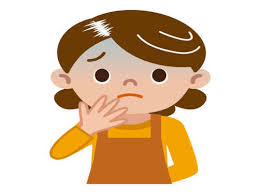A few decades ago, gray hair was widely regarded as a natural sign of ageing. However, times have changed. Today, it is common to see children and teenagers with white hair, making premature greying a growing concern among adults.
Premature greying, also known as canities or achromotrichia, is defined as the onset of grey hair before the age of 25 in Asians, 20 in Europeans, and 30 in Africans. Hair turns grey or white when melanin, the pigment responsible for hair colour, is no longer produced by pigment cells.
Common Causes of Premature Greying:
Genetics (the most significant factor).
Stressful lifestyle.
Smoking.
Air pollution and UV radiation exposure.
Thyroid disorder.
Vitamin and mineral deficiencies, including vitamin B-12, zinc, iron, and selenium.
Lack of antioxidants in the diet.
Autoimmune and inflammatory conditions.
Celiac disease.
Vitiligo.
The ability to reverse or prevent premature greying largely depends on its underlying cause. Healthy hair is often associated with youth and overall well-being. Since hair plays a vital role in non-verbal communication, premature greying can significantly impact an individual's self-esteem and confidence, potentially leading to emotional distress or depression, especially in teenagers.
Preventive Measures for Healthy Hair:
Avoid excessive use of hairstyling tools and harsh hair products.
Protect your hair from sun damage.
Ensure adequate intake of vitamins A, B, C, D, and E, as well as essential minerals.
Consume enough protein, as hair follicles primarily consist of protein.
Manage stress effectively.
Engage in regular physical activity to boost blood circulation.
Massage your scalp to improve blood flow, stimulating hair follicles.
Natural remedies like Indian gooseberry juice, almond oil, and lemon juice can help prevent premature greying.
Use high-quality shikakai as a natural hair cleanser.
Parents should limit children's consumption of junk food.
Research Insights:
Studies indicate that individuals with premature greying often have lower serum ferritin levels compared to those with healthy hair. Hair ageing consists of two key processes:
- Ageing of hair follicles leads to decreased melanin production and reduced hair growth.
- Weathering of the hair shaft is caused by environmental and lifestyle factors.
Since grey hair at a young age can be distressing, here are some effective management tips:
Use mild shampoos instead of harsh ones, which can weaken hair follicles.
Massage with almond oil, rich in vitamin E and protein, to nourish hair.
Incorporate green vegetables like spinach, bell peppers, cucumber, and celery for their iron content.
Increase vitamin C intake for better hair health.
Add walnuts to your diet, as they contain biotin (vitamin B7), which may help reduce premature greying.
Cook with mustard oil, a good source of omega-3 fatty acids essential for hair health.
Curry leaves mixed with oil are known to be an effective natural remedy for greying.
Role of Vitamin B:
B vitamins play a crucial role in preventing premature greying. Supplements may help boost the body's ability to retain natural hair colour, but if genetics are the root cause, reversing grey hair is challenging. In such cases, consulting a dermatologist is advisable for proper diagnosis and treatment.
Lifestyle Changes for Better Results:
For the best outcomes, combine treatments with these lifestyle adjustments:
Maintain a balanced diet rich in essential vitamins and minerals.
Reduce tea and coffee intake, as they contribute to high oxidative stress.
Improve blood circulation to the scalp with these yoga asanas:
- Pavanmuktasana
- Adho Mukha Svanasana
- Sarvangasana
- Halasana
- Trikonasana
- Nail rubbing therapy (stimulates hair growth)
"Invest in your hair; it is the crown you never take off". - Casa Vera Beauty Journals.
|

